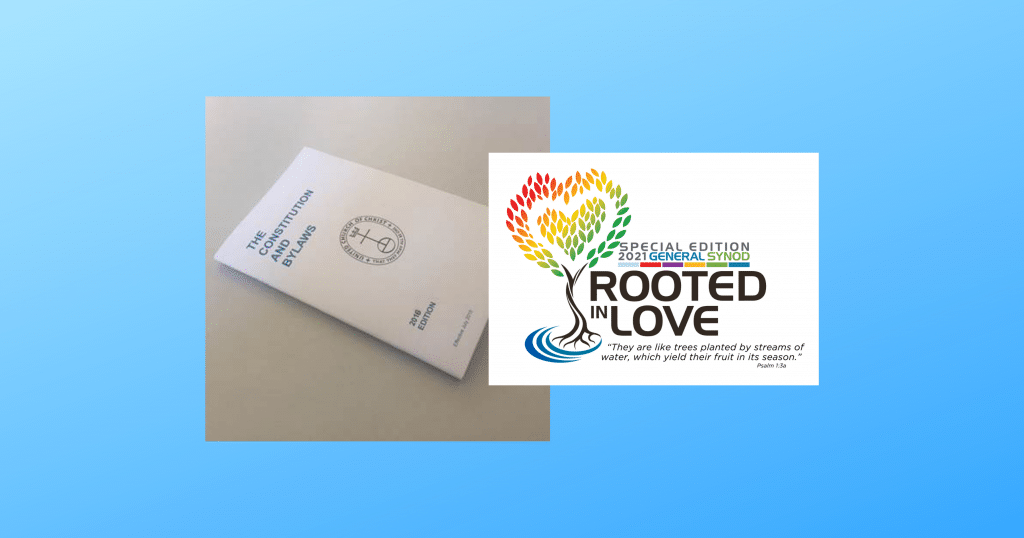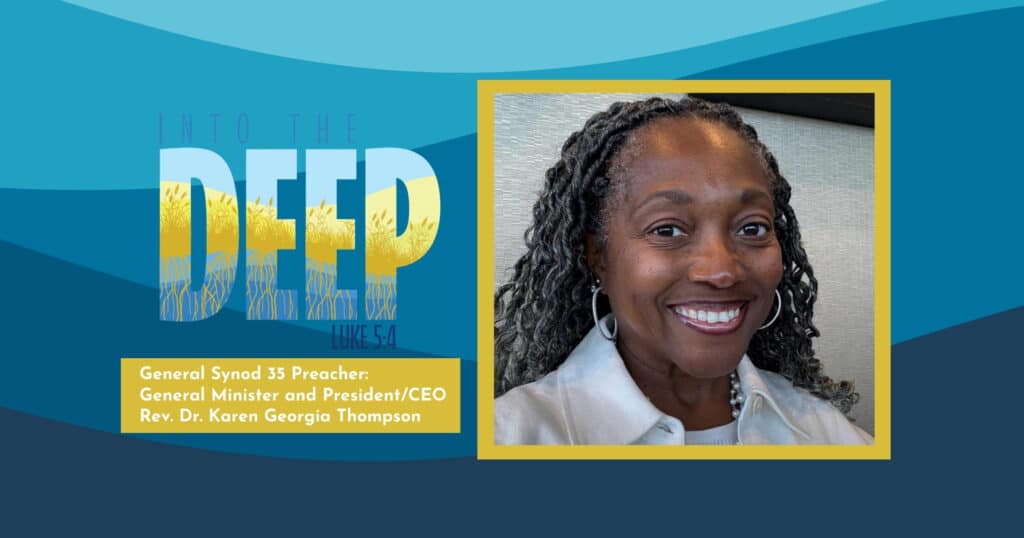Synod votes to recognize Alliance of Associate Conference Ministers as a ‘self-created group’
The General Synod of the United Church of Christ voted July 18 to name the Alliance of Associate Conference Ministers in the UCC Bylaws.
By approving a resolution brought by four UCC Conferences, the Synod recognized AACM as a “Self-Created Group” in covenant with the UCC through the UCC Board.
Throughout Synod committee hearings, participants expressed strong support for associate conference ministers and the work they do. While delegates on the committee did not modify the language of the resolution, some participants questioned whether this section of the UCC Bylaws was the best place to recognize the associate conference ministers.
They noted that Article VI, where “Self-Created Groups” are listed, has traditionally been used to covenant with “marginalized groups” rather than UCC professionals. But a motion by the Rev. Diane Weible, Conference minister in Northern California Nevada and a member of the UCC Board, to send the resolution to the board to explore that issue, was defeated. Following discussion, the original resolution was approved by a margin of 456 to 90, with 13 abstentions.
‘Lonely and challenging job’
The Rev. Andria Davis, executive pastor for digital experience and worship at Cathedral of Hope UCC in Dallas, chaired the committee that considered the resolution. She spoke in favor of it during the plenary session. She called it a short but complex resolution that “brought up questions about our polity, our bylaws, and the ways in which policies, practices, procedures and resources vary from conference to conference and association to association.”
Davis said, “Ministers and ministries that are supported by resources, networks of support, and opportunities for growth often thrive. But without these resources, without close clergy connections, without the opportunity to grow, to receive feedback and support from colleagues, and without formal networks for collaboration, exploration, education and innovation, ministry can also be a lonely and challenging job.”
Formally recognizing the alliance as a Self-Created Group, she said, “is the next faithful step in a multi-year process of grassroots work, self-definition, intentional conversations in many settings of our denomination, and discernment about the changing needs of people serving as associate conference ministers.”
Debate over place in bylaws
The Rev. Brigit Stevens, who leads the Iowa, Nebraska and South Dakota conferences — sponsors of the resolution, along with New Hampshire — spoke in favor and described her previous work as an associate conference minister.
“As an ACM,” she said, “I was only able to be successful because of an assortment of organic relationships. What a gift it would have been to have had a more robust structure” of support. She said she wanted to offer the structure she had to all ACMs.
The Rev. Mary Nelson, another former associate conference minister now serving as the transitional conference minister in Missouri Mid-South, supported referring the resolution to the UCC Board. Nelson said she was “certainly sympathetic” with AACM’s need for recognition but didn’t think it was appropriate to recognize the group in that section of the bylaws.
Echoing Weible, Nelson said she supported asking the board to create a new bylaw addressing the needs of all of the UCC’s professional groups, including associate conference ministers, musicians, professional and administrative employees and attorneys. This, she said, would “enhance” their voice not “limit it.”
‘Support they desperately need’
Others argued that the alliance had already spoken with representatives of many levels of the UCC governance structure, and been advised to take this approach.
The Rev. Darrell Goodwin, who leads the Southern New England Conference and is a UCC Board member, said he supported finding other ways to recognize professional groups within the UCC. But, he said, “it should not be done at the expense of a group that has already done the work.”
The Rev. Matthew Redrich, pastor of Sacred Place United Church in the Southern California Nevada, acknowledged the concerns of some UCC leaders, but said that in the UCC, “we don’t intentionally have a top-down structure.” The ACMs, he said, “are equipping local churches, work that is changing every day.” He said he supported the resolution “so that they can get the support they desperately need.”
Sara Fitzgerald, General Synod Newsroom volunteer, is a member of Rock Spring Congregational UCC, Arlington, Va.
Related News
2025 Climate Hope Art Contest award winners plant seeds of hope
The celebration of the 2025 Climate Hope Art Contest for children and youth of the United...
Read More‘Not your typical webinar’: Womxn 2 Womxn series aims to foster community
As the church works towards gathering this summer at General Synod 35 in Kansas City,...
Read MoreThompson to bring a ‘prophetic and pastoral’ message to Synod: ‘We are not all the same, but still one body’
On Sunday, July 13, the Rev. Dr. Karen Georgia Thompson will take the stage at the 35th...
Read More



